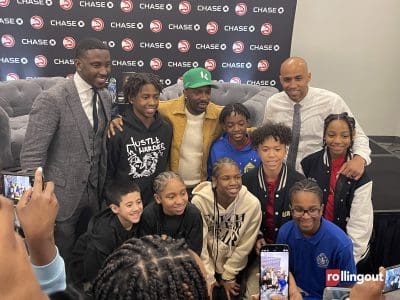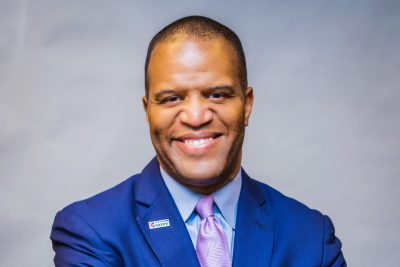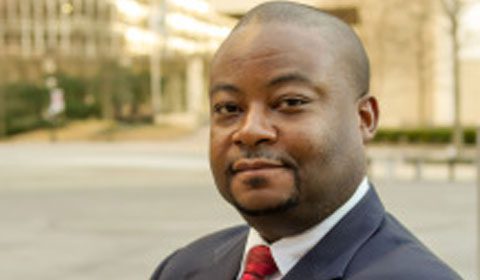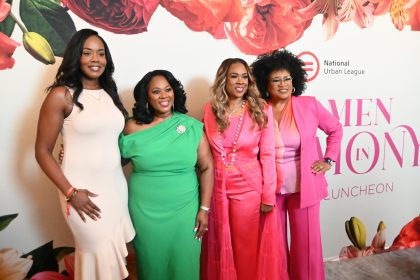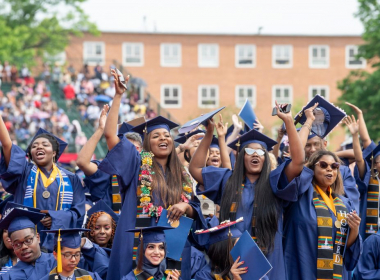
Lincoln College of Technology professor Earle C. Mitchell is a highly respected Black intellectual as well as a mentor and scholar of African and African American studies. Mitchell is the author of Egyptian Origins of Washington, D.C. He holds a bachelor’s from Morehouse College, and his master’s in African-American studies from Clark Atlanta University. Rolling out requested his responses to a series of questions about Min. Louis Farrakhan and his message and rally of Justice or Else, which will occur on 10-10-15.

Is Min Louis Farrakhan by using the Koran and the Bible in his sermons an enemy of the Christian gospel?
In my opinion, Minister Farrakhan is not an enemy to the Christian gospel because he uses the Koran and Bible in his sermons. This question in many instances is a red herring, particularly for those who do not study religion. While Christianity and Islam may differ in perceived cultural usage, they both agree on the existence of Jesus Christ. However, they differ in the manner in which Jesus Christ existed. Specifically, Christians see Jesus as the Son of God, whereas Muslims see Jesus as major prophet but not the Son of God. The manner in which the Koran pays respects to Jesus, and how the Bible extends Jesus to the world is in no way contradictory. Just because Minister Farrakhan uses both books in his sermons does not mean he is an enemy to the Christian gospel. To my knowledge Minister Farrakhan has never disparaged the Bible out right, nor discounted the idea of Jesus Christ. It can be assumed that because he has taken a “pro-black” stance on domestic and international issues that his words would be used against him. Speaking truth to power has never been an easy thing for people of African descent in America to do. In addition, considering that the Nation of Islam has always been a whipping post for the media, you can see why a question like this would be asked in 2015.
Is there room for his message in the Black church?
Definitely, there is room for Minister Farrakhan’s message in the Black Church. Seemingly, many African-Americans, and others, get confused about the role of culture and religion in the African-American community. Depending upon on how you were raised, you may not have tolerance for other religions and the people that practice those religions. While this is not a mindset to have, many do embrace such a mindset. Much of this divide can be traced back to slavery and the manner in which people of African descent where told to believe. Islam and Christianity have been a part of the African Diaspora for several centuries. However, the manner in which those religions intersect in America, especially post September 11, 2001, is more contentious. When you add “Black” to Islam and the perceived “militant” stance associated with it, there is the potential for many to miss the message based upon unsubstantiated cultural bias (by both blacks and whites). This was witnessed in the 1950’s when Elijah Muhammad was gaining ground with the Nation of Islam, and its rise in the 1960’s with Malcolm X being its mouthpiece. Further, the inability for many to be stuck in a non-inclusive manner of thinking disallows a coherent message to be heard; no matter the messenger or religion. Therefore, there is room for Minister Farrakhan’s message in the Black Church. However, this can only happen if those who are Christian can be open to his cultural message. As an aside to the answering of this question, the understanding of the fluidity of culture must be understood. African-Americans are NOT a monolithic group. We believe in different gods, and practice different religions. However, at the core of the African in America and the Diaspora, is a cultural unity that ought to bind beyond the religions they practice and the gods they believe in. This is seen in West Africa were you have Muslims, who are African, that continue their cultural practices based upon the groups they come from. So whether you are Mandika, Fulani, etc. you still maintain a cultural identity that predates your religious affiliation to Islam. This is part and parcel to the experience of the African on the continent of Africa. This idea of cultural fluidity ought to work in America, where Minister Farrakhan who is a Muslim can talk to the “Black Church” because of the cultural connections these religious groups share. However, the reality is the cultural fluidity of many African-Americans has been curtailed because of the experience of living in the United States.
Why do you think there is a perception that the Black church is afraid of his message?
In a very real sense the perception that the Black Church is afraid of Farrakhan’s message can be traced back to the same things that were said about Malcolm X and the Nation of Islam. The media has created an Us (Christians) verses Them (Muslims) type of situation. This can be seen in 1959 when Mike Wallace and Louis Lomax produced the documentary entitled: ‘The Hate That Hate Produced’(https://archive.org/details/PBSTheHateThatHateProduced). While the documentary was supposed to be a tool to show how hate in America produced the “militancy” in the Black community, it also scared Whites and Blacks alike. In addition, the documentary seemingly tried to push the buttons of those who supported the Nation of Islam and tried to get the interviewees to say something controversial. This type of feeling, exposed in the documentary, still resonates within the African-American community today. The controlling of who African-Americans embrace as leader, religious or otherwise, has always been subject to those not within their community. As such, real or imagined, there will be those that perceive the Black Church as afraid of Minister Farrakhan’s message. The perception that the Black Church is afraid of Farrakhan’s message will only change when there is a true level of cultural unity that moves beyond religious doctrine in the African-American community.
Is Christianity the only religion that produces safe Black leaders for Black America?
The question must first answer what does the word “safe” actually means. Does safe mean not speaking truth to power? Does it mean only those who are Christian can bring the evangelist (good message) word to the masses. Does safe mean that only Christianity can bring the “true” word to and from those of African descent — the answer to this is no. There is no one type of person, religion or message that ought to be able to bring a good message to the African-American community. Therefore, Christianity is not the only religion that can produce a “safe” Black leader. To even think in this manner is quite detrimental to the evolution of the African-American in America.
Many say the message of Dr. King countered the message of Min. Malcolm X, what is your opinion?
The answer to this question is a bit more nuanced than most would care to give credit. There has always been this pitting against of African-American leaders against one another (Dubois vs. Garvey, King vs. Malcolm X, Newton vs. Karenga, etc.). In the 20th century the pitting of African-American leaders against one another seemed to be literary and newspaper sport. To write about the differences of approach, method, effectiveness, etc. in regard to where the community ought to go took away from the main issues affecting African-Americans. Dr. King and Malcolm X were saying the same thing from two different religious platforms. Again, as mentioned before, the cloud of religion got in the way of the cultural message (unity) that was taking place. Further, the look and feel of both Dr. King and Malcolm X were picked apart: Dr. King was educated/Malcolm X went in prison, King was Christian/Malcolm was Muslim, King was accommodating/Malcolm was militant, etc. Dr. King sought more of a coalition toward the creation of opportunities for African-Americans. However, initially, Malcolm X did not embrace a coalition stance for the freedom of African-Americans. Yet, after Malcolm X took his Hajj and saw the varying hues and colors of Muslims he was truly changed. In that moment Dr. King and Malcolm X were approaching a cultural nexus where their respective groups could have intersected. Malcolm X was expanding in his openness to engage outside of the African-American community, and Dr. King was embracing his authentic Blackness, hence his “Yes, I’m Black and proud, I’m Black and beautiful” comment from one of his latter speeches (https://www.youtube.com/watch?v=Suw_CQ3zfTY). Therefore, Dr. King’s message did not counter that of Malcolm X’s, as Malcolm X’s did not counter Dr. King’s message. As expressed earlier, these men were coming from two different religious platforms, but their cultural unity was the undergirding force that moved them in the direction to assist their community.
What national Black leader is a counter to the message of Farrakhan? Do we face a united message?
There does not seem to be a Black leader in the U.S. that is countering the message of Minister Farrakhan. If there were such a leader, the question would have to be why? This is said because with the death of so many unarmed African-Americans over the last several years, how could there really be any counter message? At this point, it has to be understood that Black Lives Matter! The fact that we have to even proclaim that in 2015 is problematic. Lastly, our message better be or get united. If it is not, we will continue to see the madness that has plagued us since being brought to these shores.

